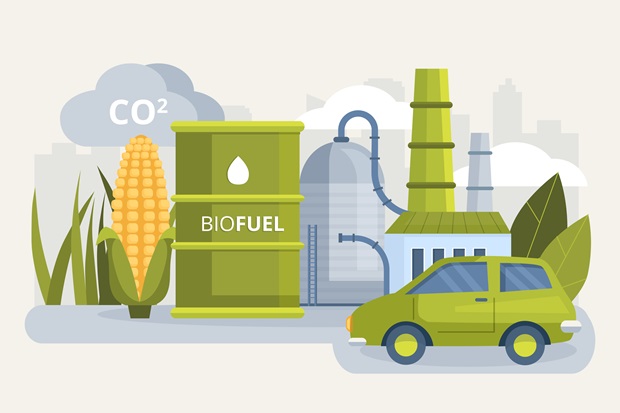Petronas, Malaysia’s leading state-owned energy firm, Italy’s Enilive SpA, and Japan’s Euglena Co are teaming up to build a new biorefinery in Malaysia, a project expected to significantly enhance the country’s sustainable fuel capabilities. The companies have reached a final investment decision, marking a substantial step forward in their joint venture.
The biorefinery will be constructed at Petronas’s integrated refinery and petrochemical complex located in Pengerang, Johor state. The decision to build the facility highlights a growing trend towards sustainable energy solutions. The biorefinery is slated to process up to 650,000 tons of raw materials annually. This capacity will allow the plant to produce various eco-friendly fuels, including sustainable aviation fuel (SAF), hydrogenated vegetable oil (HVO), and bio-naphtha.
Sustainable aviation fuel is a key focus of this project. SAF is known for its potential to significantly reduce carbon emissions compared to conventional jet fuels, making it an important component in global strategies to combat climate change. Similarly, hydrogenated vegetable oil and bio-naphtha are used in various applications, including in the production of plastics and other materials, providing greener alternatives to traditional fossil-based products.
Construction of the biorefinery is expected to begin in the fourth quarter of this year, with completion and operational status targeted for the second half of 2028. This timeline allows for thorough development and testing phases, ensuring the plant meets both environmental and operational standards.
The project represents a significant investment in Malaysia’s energy infrastructure, aligning with the country’s broader goals of advancing sustainable development and reducing its carbon footprint. By leveraging advanced technologies and fostering international collaboration, the biorefinery is poised to play a crucial role in the global transition towards more sustainable energy sources.
Petronas, Enilive SpA, and Euglena Co’s collaboration not only reflects their commitment to green energy but also positions Malaysia as a key player in the future of sustainable fuel production. The successful implementation of this biorefinery could serve as a model for similar initiatives worldwide, demonstrating how large-scale investments in sustainable technologies can drive meaningful environmental and economic benefits.

